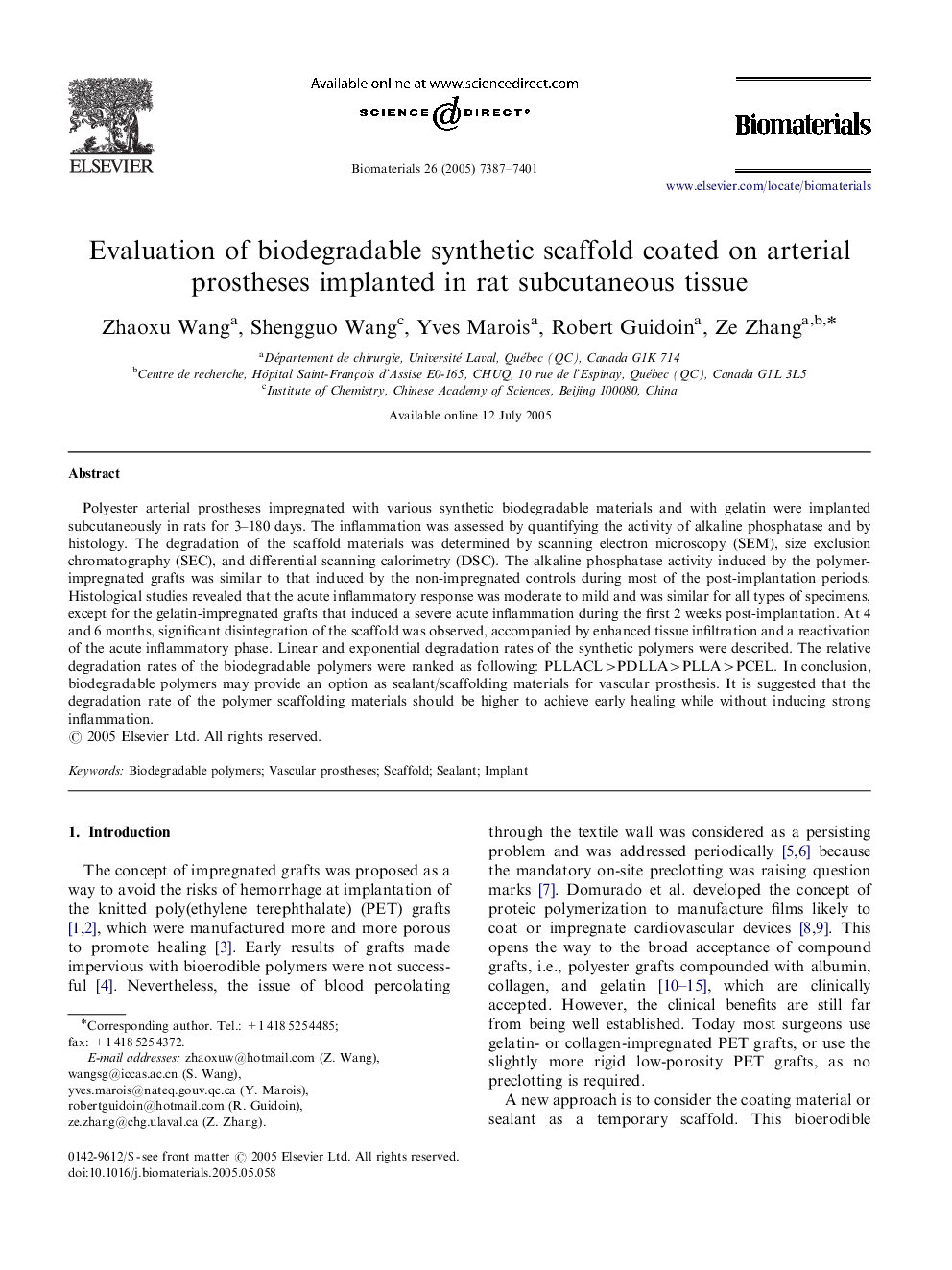| Article ID | Journal | Published Year | Pages | File Type |
|---|---|---|---|---|
| 10909 | Biomaterials | 2005 | 15 Pages |
Polyester arterial prostheses impregnated with various synthetic biodegradable materials and with gelatin were implanted subcutaneously in rats for 3–180 days. The inflammation was assessed by quantifying the activity of alkaline phosphatase and by histology. The degradation of the scaffold materials was determined by scanning electron microscopy (SEM), size exclusion chromatography (SEC), and differential scanning calorimetry (DSC). The alkaline phosphatase activity induced by the polymer-impregnated grafts was similar to that induced by the non-impregnated controls during most of the post-implantation periods. Histological studies revealed that the acute inflammatory response was moderate to mild and was similar for all types of specimens, except for the gelatin-impregnated grafts that induced a severe acute inflammation during the first 2 weeks post-implantation. At 4 and 6 months, significant disintegration of the scaffold was observed, accompanied by enhanced tissue infiltration and a reactivation of the acute inflammatory phase. Linear and exponential degradation rates of the synthetic polymers were described. The relative degradation rates of the biodegradable polymers were ranked as following: PLLACL>PDLLA>PLLA>PCEL. In conclusion, biodegradable polymers may provide an option as sealant/scaffolding materials for vascular prosthesis. It is suggested that the degradation rate of the polymer scaffolding materials should be higher to achieve early healing while without inducing strong inflammation.
